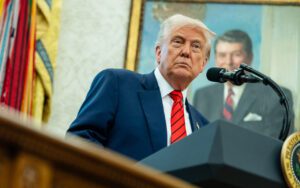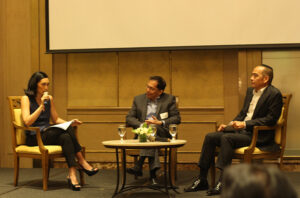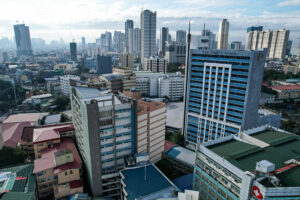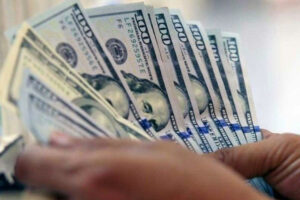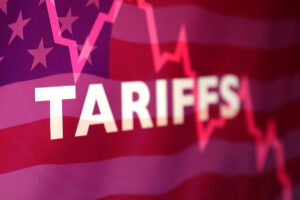By Chloe Mari A. Hufana, Reporter
THE PHILIPPINE government is willing to negotiate with the United States to lower the 17% tariff imposed on Philippine-made goods, according to Frederick D. Go, special assistant to the president for investment and economic affairs.
This comes after US President Donald J. Trump on Wednesday paused the steep new tariffs imposed on most of its trading partners, including the Philippines, for 90 days. However, the blanket 10% duty on nearly all US imports will remain in effect. (Read related story “Trump’s tariff pause focuses trade war on China”).
In a virtual Palace briefing, Mr. Go said he will head to Washington to discuss the tariff on Philippine goods with the US Trade Representative (USTR), but there is no definite date yet.
“This is not about appealing [the tariffs], but about negotiating,” Mr. Go said.
“The best possible outcome is a free trade agreement [between the Philippines and the US] — a free trade agreement means zero tariffs on their side and zero tariffs on our side —that’s probably the best possible outcome of that meeting, but again it’s open communication, dialogue, cooperation and let’s see what we can negotiate,” he added.
Citing the National Economic and Development Authority, Mr. Go estimated the 17% tariffs on Philippine goods will have a “small” 0.1% effect on the country’s gross domestic product (GDP) over the next two years.
“First of all, what we can clearly see in the reciprocal tariffs imposed by America on the world is that the Philippines has a slight advantage,” he added.
He noted the Philippines has the second-lowest tariffs in the Southeast Asian region, with 17%, compared with other nations that reached as high as 54%. Singapore received the lowest tariff rate at 10%.
Despite this, Mr. Go recognized that any additional tariffs would still impact certain industries in the country.
“We also have to consider that this involves only one export sector of the country, and businesses are generally quite resilient — if one market closes, they look for another market to open. So, the estimate is a 0.1% effect on our GDP,” he added.
Meanwhile, Mr. Go said the government is also eyeing support for exporters that will be affected by the new US tariffs.
“First (we will) engage with our exporters to discuss with them what the possible measures are that they can take, and that the government can assist them in this current situation,” he said.
Mr. Go also underscored the need to monitor how neighboring countries are responding to the tariffs and how Washington will react to requests from its trading partners.
While each Association of Southeast Asian Nations (ASEAN) member-country may have its own position, he noted the need for vigilance and adaptability.
“[For the Philippines], we’re in a semi-good place, but of course we cannot be complacent; we need to keep monitoring what the other countries do, and for ourselves we need to negotiate an agreement that is beneficial for our country and for the businesses and enterprises in our country,” Mr. Go said.
Leonardo A. Lanzona, an economics professor at the Ateneo de Manila University, said the impact of the higher US tariffs will probably be more than merely 0.1% of Philippine GDP.
“While tariffs per se may have little impact on the Philippines, the depression in the US associated with these tariffs will have a much heavier impact. Global production will decline as countries become more and more protectionist,” Mr. Lanzona said.
“The globalization we once knew will no longer be there… Hence, it is not true that the impact will only be 0.1% of the GDP. It is probably going to be more,” he added.
IBON Foundation Executive Director Jose Enrique “Sonny” A. Africa said it may be premature to say the US tariffs will have little effect on the economy.
“The ‘0.1%’ impact on GDP cannot have any basis in fact, because the facts are still unfolding, and hides this with its dubious one-decimal place precision,” he told BusinessWorld in a Viber chat.
Mr. Africa said the Philippine government must also consider the eventual impact of a US slowdown on remittances as well as second-round effects on inflation, interest rates and supply chains.

